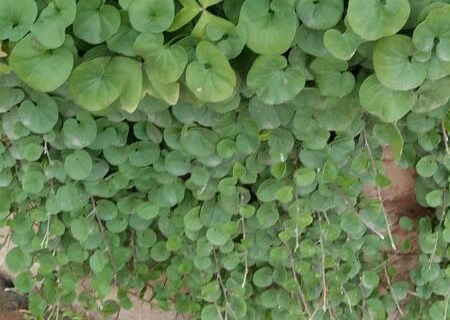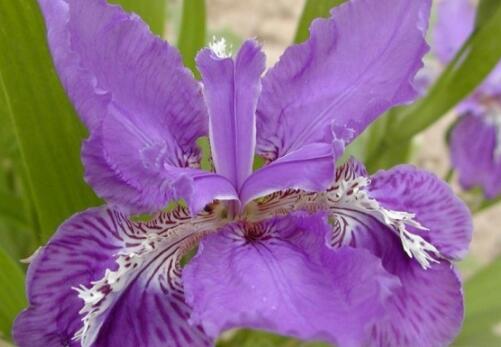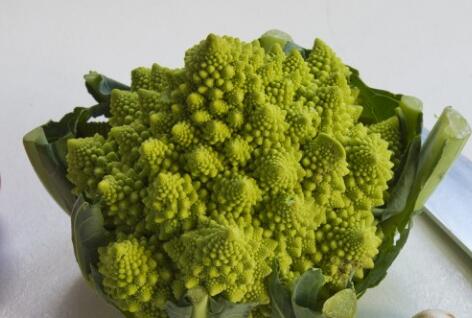What are the seed planting methods of Dichondra repens (Convolvulaceae)? How to cultivate the effect of waterfall? What is the effect and effect?
Dichondra is a metal plant of Convolvulaceae and horseshoe. Note that Dichondra should not be confused with authentic money grass (passing yellow). It grows on roadsides, hillsides, grasslands or ditches, and has been introduced and cultivated artificially. So what are the seed planting methods of Dichondra repens? How to cultivate the effect of waterfall? What is the effect and effect? Dichondra repens is a Miao folk medicine with rich resources, which has good development and utilization value.

I. seed planting method of Dichondra repens
1. Land preparation
Do a good job in the topography of the land, where it should be high and where it should be depressed. Once the seeds are planted, it is not good to change the terrain. After determining the topography, remove all weeds and apply 3-5 tons of agricultural fertilizer per mu. The fermented chicken manure and cow manure are the best, and all the topsoil is ploughed once.
two。 Sowing seeds
After finishing the land, you can sow. The seeds of Dichondra repens are small and mainly sowed. When there is no wind, sow the seeds evenly, then cover the soil with a little positive pressure of 1cm to 2cm and cover with plastic film or degradable non-woven fabric after watering. If the temperature is good, germinate in about 10 days. after germination, pay attention to timely watering to accelerate the growth of shoots. Within 2 months of planting Dichondra, you need to weed manually. Remember not to use herbicides. Currently, no herbicide can be used on Dichondra repens.
The area of the courtyard garden is small, and the mechanical cultivated land is difficult, so it is generally used to turn the soil or spray water to sow seeds. If you can't turn the soil, remove the weeds and sow the seeds directly, but water them every day before germination to keep the seeds absorbing enough water to guide about half a month after germination.
Second, how to cultivate the effect of waterfall
Maintenance of light
When raising Dichondra, light is very important. What Dichondra needs is an environment with sufficient light, sufficient light and good ventilation, so that Dichondra can grow well, branches and leaves are luxuriant, and Dichondra cultivated in hanging basins will have the effect of waterfall. When you need to pay attention, Dichondra needs proper shade in summer.
Watering and fertilizing
Watering is the key to the good growth of Dichondra. Dichondra is a plant with fine root system, which is not very resistant to drought and needs to keep the soil moist when breeding. In general, when raising Dichondra, it needs reasonable watering and often sprays water on the plants of Dichondra. Be careful not to lack water, which will cause Dichondra to lose its leaves and sparse branches and leaves, which will affect ornamental. When there is plenty of water, the Dichondra cultivated in the hanging basin will have thick branches and leaves.
Fertilization is also a very important step, Dichondra prefers nitrogen fertilizer, adequate fertilizer branches and leaves will grow more luxuriantly, but also easier to create a waterfall effect of hanging basin Dichondra. When raising Dichondra repens, nitrogen fertilizer can be applied in combination with watering, but do not pollute the leaves.
Pruning
In order to produce the effect of waterfall, it is very important to prune the Dichondra cultivated in hanging basin. The growth rate of Dichondra is still relatively fast, but in breeding, proper pruning can make its branches and leaves many and dense. And pruning can cut off the ornamental leaves in time, and sort out the branches that grow in disorder. In this way, you can create a beautiful waterfall and maintain its good shape.
III. The efficacy and function of Dichondra repens
The efficacy of Dichondra repens
Dichondra, also known as Dichondra, has the effects of clearing heat, dampness and detoxification. Dichondra is also known as: icteric grass, lotus grass, meat wonton grass, golden key, Spirits, wine cup nest, golden dig ear, corngrass, small Erigeron, small wind grass, small bowl grass, small half lotus, not wax, star grass, small yuan treasure grass, landing money, little toad bowl, nine rings, jade etch ton, small half money. Dichondra repens mainly for jaundice, dysentery, sand shower, white turbidity, edema, eczema, injury caused by falls and snakebites.
Alias: Dichondra, icteric grass, purse grass, meat wonton grass, golden key, Spirits, dimple, golden dig ear, corngrass, small lamp herb, small wind grass, small bowl grass, small half lotus, ground money, small toad bowl, nine rings, jade etch ton, small half money, Xianju people say: small bowl head. The efficacy and function of Dichondra repens
Nature: bitter; cool.
Meridian: lung meridian; liver meridian.
Function: clearing heat; promoting dampness; detoxification.
Indications: jaundice; dysentery; sand shower; white turbid; edema; eczema; fall injury; venomous snake bite.
Usage: oral administration: fried soup, 6-15g, fresh 30-60g. External use: appropriate amount, tamping.
The role of Dichondra:
1. Dichondra repens dysentery: hold two or three fresh snails; after washing, mash and grind juice, add rock sugar to stew for half an hour, and take it twice before meals. (Fujian Folk Herbal Medicine)
2. Dichondra repens for jaundice: purse grass, snail-triplet. Make the sauce clear and simmer hot. ("Zhou Yisheng Jia Baofang")
3. Treat furuncles in the eyes: meat wonton grass (even roots and leaves) and wine brewing grains and juice drink. (summary of Ophthalmology)
4. Dichondra repens finger snail furuncle: fresh jaundice grass or two, a little winter honey, smash and apply to the affected area. Those who have not become purulent dissipate, and those who have become purulent promote their suppuration. (East Fujian Materia Medica)
5. Horseshoe Dichondra treats edema at the beginning: a large live crucian carp is cut with porcelain, scaled and intestinal blood, wiped with paper, no water, filled with purse grass, steamed with sweet liquor, to herbivorous fish. ("hundred Grass Mirror")
6. to treat urine and blood: one to two taels of fresh Dichondra, five dollars for rock sugar. Stewed clothes with water. (Fujian Chinese Herbal Medicine)
7. Dichondra repens infantile abdominal distension: one or two fresh jaundice grass, three dollars of rock sugar, stew with boiling water; apply dregs to the navel.
8. Dichondra for colds and colds: five to one or two. Fried clothes. ("commonly used Chinese Herbal Medicine in Shanghai")
9. Dichondra repens heatstroke and abdominal pain: fresh Dichondra repens. Make juice, make wine or boiled water suit. (Fujian Chinese Herbal Medicine)
10. Dichondra repens: fresh icteric grass five coins, two slices of ginger, smashing the scratch area; and stewing with fresh jaundice grass two taels, yellow rice wine and boiling water each four taels.
11, treat children's milk moth: fresh jaundice grass is mashed, soak in rice paste for about an hour, take thick juice and gargle frequently. ("Mindong Materia Medica" is listed below by ⑨)
12. Dichondra for breast abscess: external application of fresh Dichondra crushed. ("Chinese herbal medicine commonly used in Shanghai") ⒂ treats snake bites: Herba Epimedii, Inner wonton grass and wild beet. ("Zhou Yisheng Jia Baofang")
13. Dichondra repens pulmonary hemorrhage: fresh snail pi grass is grasped, washed, mashed and squeezed juice, stewed with rock sugar for half an hour, taken twice a day after meals. (Fujian Folk Herbal Medicine)
14, treatment of systemic edema (glomerulonephritis): fresh Dichondra is pounded on the navel, once a day, seven days as a course of treatment, or five to one or two fried clothes. ("commonly used Chinese Herbal Medicine in Shanghai")
15. Dichondra repens bladder stones and gallstones: small money grass, all over the sky, big money grass, dandelion. Fried and served together. (Sichuan Chronicles of traditional Chinese Medicine)
Time: 2019-03-18 Click:
- Prev

How much is the price of Lanke Iris? When do you plant and blossom? How do you plant it?
Iris is born on trees in the forest, 1300-1400 meters above sea level. Stem short, inconspicuous. Leaves nearly basal, 5-6, distichous intussusception, flattened on both sides, hypertrophic, with joints at the base. How much is the price of Iris? When do you plant and blossom? How do you plant it? Learn from Changsha Flower and Bird Market
- Next

How much is a jin of colorful cauliflower that is popular in Europe and America? How is the planting benefit?
The common cauliflower is yellow, crisp and delicious, but have you ever seen purple cauliflower, orange and green cauliflower? In fact, colored cauliflower has long been popular in Europe and the United States, as a variation of common cauliflower, in addition to having different colors.
Related
- Fuxing push coffee new agricultural production and marketing class: lack of small-scale processing plants
- Jujube rice field leisure farm deep ploughing Yilan for five years to create a space for organic food and play
- Nongyu Farm-A trial of organic papaya for brave women with advanced technology
- Four points for attention in the prevention and control of diseases and insect pests of edible fungi
- How to add nutrient solution to Edible Fungi
- Is there any good way to control edible fungus mites?
- Open Inoculation Technology of Edible Fungi
- Is there any clever way to use fertilizer for edible fungus in winter?
- What agents are used to kill the pathogens of edible fungi in the mushroom shed?
- Rapid drying of Edible Fungi

